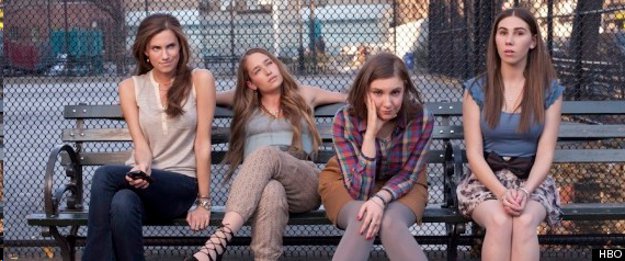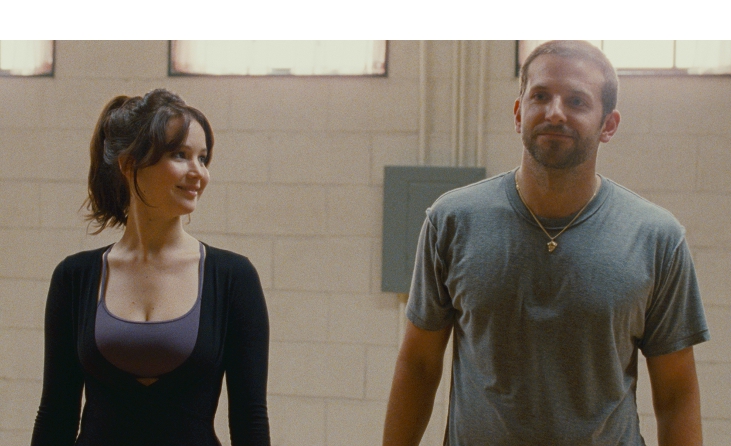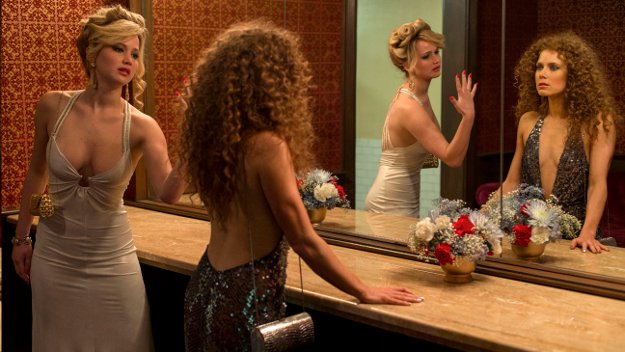Is Cinema Making a Comeback? The Plight of ‘American Hustle’

American Hustle went big. They had showy outfits, plunging necklines, big hair, bigger personalities. But since it was directed by David O. Russell, the film embraced a certain strangeness, which was then embraced by audiences. As many action movies haven’t been raking in profits the way they used to, some were hoping that the “art of cinema”—in a more traditional sense—might make its way back into the cultural mainstream. A recent New York Times article by A. O. Scott spoke to this potential rise of the “cinema.”
With so many critically acclaimed films out this winter—and a stacked awards season—it’s easy to make the argument for a new golden age of cinema: this season, American Hustle, Wolf of Wall Street, Twelve Years a Slave and more films were garnering buzz for their nominations and reviews. Is this the sign of a new boom for cinema? Or does saying the art of film is back a self-fulfilling prophecy?
American Hustle was a front-runner this award season and was initially met with fairly consistent acclaim, but with its 10 Oscar nominations, American Hustle left viewers empty-handed. This came as a surprise to some. David O. Russell's all-star cast and his previous track record made the film seem promising. It was released just before the awards season, nabbing both the Critics Circle award and the Golden Globe for Best Picture (among others). But as the hype began to fade, several critics have expressed feeling that they were "conned" by the film. Others feel American Hustle is "empty."
Many other nominees this year met somewhat similar pushback: being lauded as an indicator of a new era but fell short of foretold breakthroughs (though there are still exceptions to the rule: Best Picture Winner Twelve Years A Slave was the first film with a black director to win the accolade). Does this recent set of films mark a change in the business?
Meanwhile, other industries have been stealing all of the cultural capita: with TV becoming the medium of experiments, between Breaking Bad, House of Cards, and Girls, audiences are engrossed in the intriguing plotlines, making events of each episode viewing. These said events have all but taken the place of big movie premieres and blockbuster hits. But because of this recent usurping, cinema—an unprofitable industry as opposed to giant action blockbusters—may have been given a chance to thrive.
Critic David Denby admired the way American Hustle stood out amongst the competition in his New Yorker review, writing, “Inside Llewyn Davis and Nebraska are the current standards of what a serious Hollywood movie looks like. American Hustle offers so many easy pleasures that people may not think of it as a work of art, but it is.” Interestingly, none of these three examples made big wins at the Academy Awards.
But these promises of a new chapter for film seemed to set many of these winter releases up for failure—or, at least, disappointment. American Hustle was not out for long before it saw backlash for its praise: to some, American Hustle was considered the “worst” Best Picture nominee.

Peter Debruge wrote an article for Variety entitled, “How American Hustle Conned the Critics,” explaining that the film is a mess, and though some of its champions seem to love that most about it.” The smoke and mirrors of David O. Russell’s craft seems to dissipate in the film, according to Debruge. He writes, “Arriving so swiftly on the heels of the director’s similarly batty films The Fighter and Silver Linings Playbook, American Hustle inadvertently reveals Russell’s shtick, and once you spot the pattern, the jig is up.”
Debruge admits the impressive costumes and hairdos but asks, “Just how great are all those plunging necklines and feathered hairstyles if they risk overtaking everything else onscreen, forcing the actors to compete with their own wardrobes?” This is a question that the jury is still out on.
Critic for Slate Willa Paskin explains the hype behind American Hustle. She notes that it is “a well-acted, coolly costumed, high-energy period caper that is exactly as well made as all movies should be, but, against the backdrop of our superhero blockbuster economy, gets mistaken for something truly special.” For many of the other Best Picture nominees, this could potentially be said. How do we gauge cinema’s standing? Is it in the scheme of its competing industries?

Perhaps this backlash, this fading of hype is why American Hustle holds nearly the poorest awards turnout in Oscar history—surpassed only by 1985's The Color Purple and 1977's The Turning Point, which both went 0-for-11 nominations.
Others have found other reasons to explain American Hustle’s fall from glory. Critics have noted that though the film shared the most nominations with Gravity, it wasn’t the favorite for any category. Jennifer Lawrence won best actress last year for her work in Silver Linings Playbook, so it was unlikely that she would win best supporting this year. Amy Adams’ work was promising, but she was up against what is considered Cate Blanchett’s “career best.”
For the Oscars, there was a lot running against American Hustle. Yet why did the film get the Critics Circle Award for Best Picture? The film also won the Golden Globe for Best Picture in a Comedy Series, and the film gained a slew of other awards ahead of the Academy Awards. It’s unclear what led the Academy to make these decisions, but this much is clear: there were a lot of differing opinions about American Hustle, from audiences and critics alike.
So what does this say about the current state of cinema? Has it revealed all of its tricks like Russell has, only for us to be let down at the finale?

Perhaps American Hustle conned us into thinking we had brought back cinema and it took us a while to come to our senses. The movie was fun, the characters were outrageous, and the strange energy about it was initially alluring. What do we take with us after we leave the theater and the smoke and mirrors become illuminated? Apparently, it isn't an Oscar.
Author Bio:
Mary Kinney is a contributing writer at Highbrow Magazine.






























































































































































































































































































































